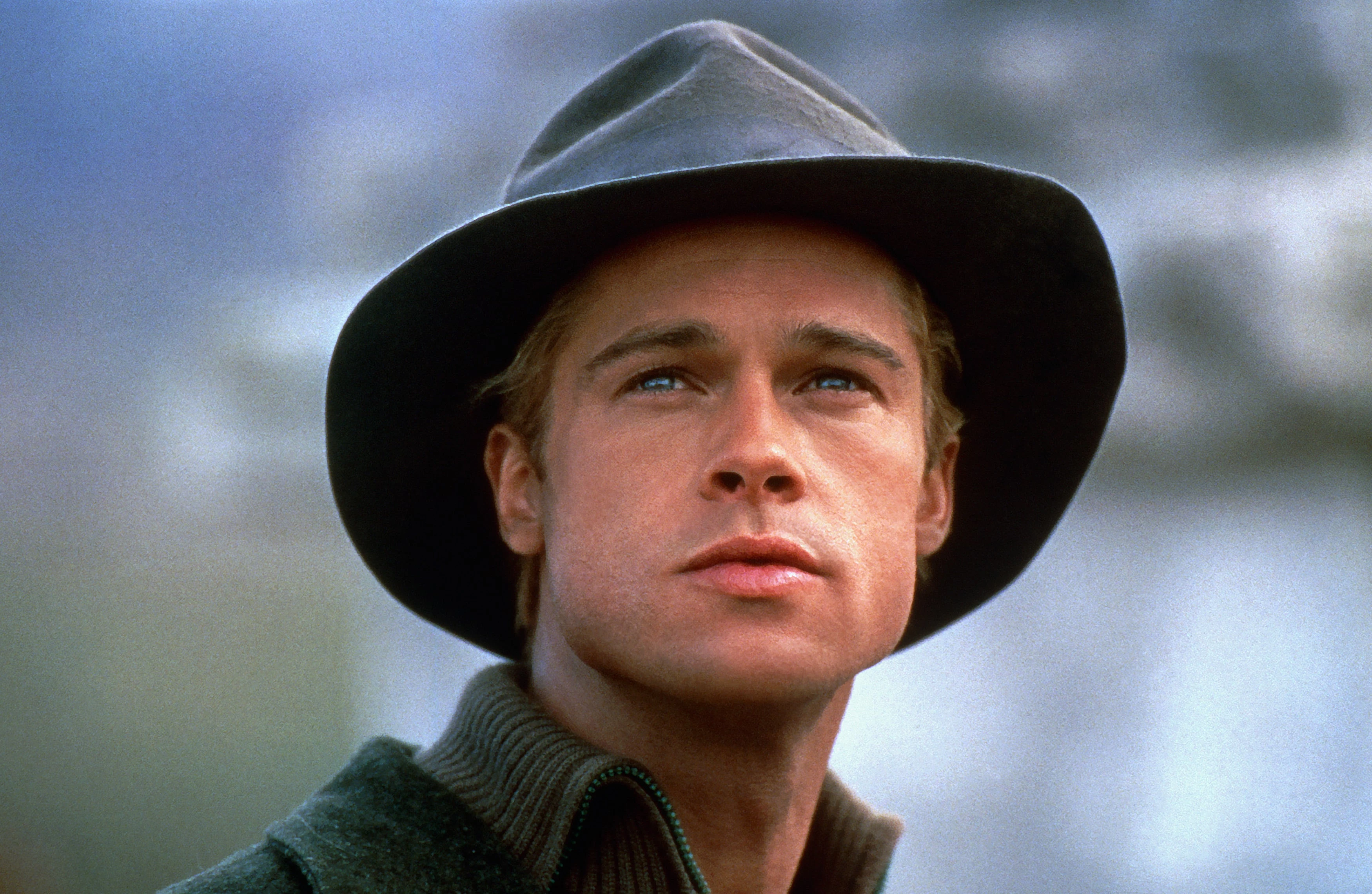In a candid interview with GQ in 2017, Brad Pitt, a Hollywood veteran, revealed a significant change in his career path. The actor, who is known for his diverse roles spanning enigmatic characters and historical ps, expressed his desire to move away from roles that are defined by pain and suffering.
Pitt's transformation goes beyond the silver screen and extends to his newfound appreciation for a specific genre of music. This shift in his on-screen choices reflects a broader personal growth.
#1. Embracing Joyful Narratives
 Source: Michael Putland/Getty Images
Source: Michael Putland/Getty Images
Brad Pitt, renowned for his remarkable Hollywood journey from the breakout role in "Thelma & Louise" to the Oscar-winning performance in "Once Upon a Time in Hollywood," is ready for a new chapter.
In a recent interview, Pitt said, "Yeah, I’m kind of done playing those. I think it was more pain tourism. It was still an avoidance in some way." This revelation suggests a conscious decision to explore characters that offer different challenges and narratives.
“I’ve never heard anyone laugh bigger than an African mother who’s lost nine family members. What is that? I just got R&B for the first time. R&B comes from great pain, but it’s a celebration. To me, it’s embracing what’s left. It’s that African woman being able to laugh much more boisterously than I’ve ever been able to.”
The actor aims to step away from the intensity of pain-filled roles, seeking a more celebratory approach to storytelling.
#2. Brad Pitt's Views On America, Music, And Personal Growth
 Source: Getty Images
Source: Getty Images
Beyond cinema, Pitt delves into thought-provoking reflections on American exceptionalism and its consequences. Drawing parallels between individual and national hubris, he acknowledges the pitfalls of imposing one's beliefs on others. The actor advocates for leading by example, emphasizing the importance of embodying national tenets rather than enforcing them.
Pitt's concern extends to the perception of America abroad, expressing dismay at the removal of the American flag from a certain war film's European posters. This revelation prompts a poignant reflection on the impact of America's actions on its global brand.
In a GQ interview, Brad Pitt drew parallels between individual and national hubris while discussing American exceptionalism.
“When I get in trouble it’s because of my hubris. When America gets in trouble it’s because of our hubris. We think we know better, and this idea of American exceptionalism—I think we’re exceptional in many ways, I do, but we can’t force it on others. We shouldn’t think we can. How do we show American exceptionalism? By example. It’s the same as being a good father.”
 Source: IMDb
Source: IMDb
Pitt's evolution is not limited to his professional life; it extends into his interests. His newfound appreciation for R&B music serves as a coping mechanism for pain and a source of inspiration. Artists like Frank Ocean, known for raw and honest lyrics, and Marvin Gaye, whose album delves into the personal nuances of divorce, have become pivotal in Pitt's musical journey. The actor's openness to therapy further underscores his commitment to personal growth and well-being.
Brad Pitt also discussed how the changing perception of America abroad has influenced his career and worldview.
“By exemplifying our tenets and our beliefs, freedom and choice and not closing borders and being protectionists. But that’s another issue. Do you want me to tell you something really sad? I thought this was so sad. We were looking at—let me say, a certain war film that was looking to promote itself. The European posters had the American flag in the background, and it came back from the marketing department: “Remove the flag. It’s not a good sell here.” I was, like, Man, that’s America. That’s what we’ve done to our brand.”
#3. The Intersection Of Personal And Professional Transformation
 Source: IMDb
Source: IMDb
As Brad Pitt navigates away from pain-centric roles, his journey encompasses a holistic transformation. His views on American exceptionalism, the evolving global perception of the nation, and the therapeutic role of music collectively contribute to this metamorphosis.
Pitt's commitment to embracing joy, both on and off the screen, reinforces a newfound perspective that extends beyond the confines of Hollywood. Brad Pitt's decision to move away from roles defined by pain marks a pivotal moment in his illustrious career. Beyond the glitz and glamour of Hollywood, Pitt's journey reflects a profound personal and professional evolution.
As he embraces narratives rooted in joy and celebrates the therapeutic power of music, the actor stands as a testament to the possibility of growth and change, even for Hollywood's most iconic ps. In a world captivated by the latest cinematic releases, Pitt's story serves as a reminder that true transformation transcends the silver screen and resonates with the broader tapestry of life.